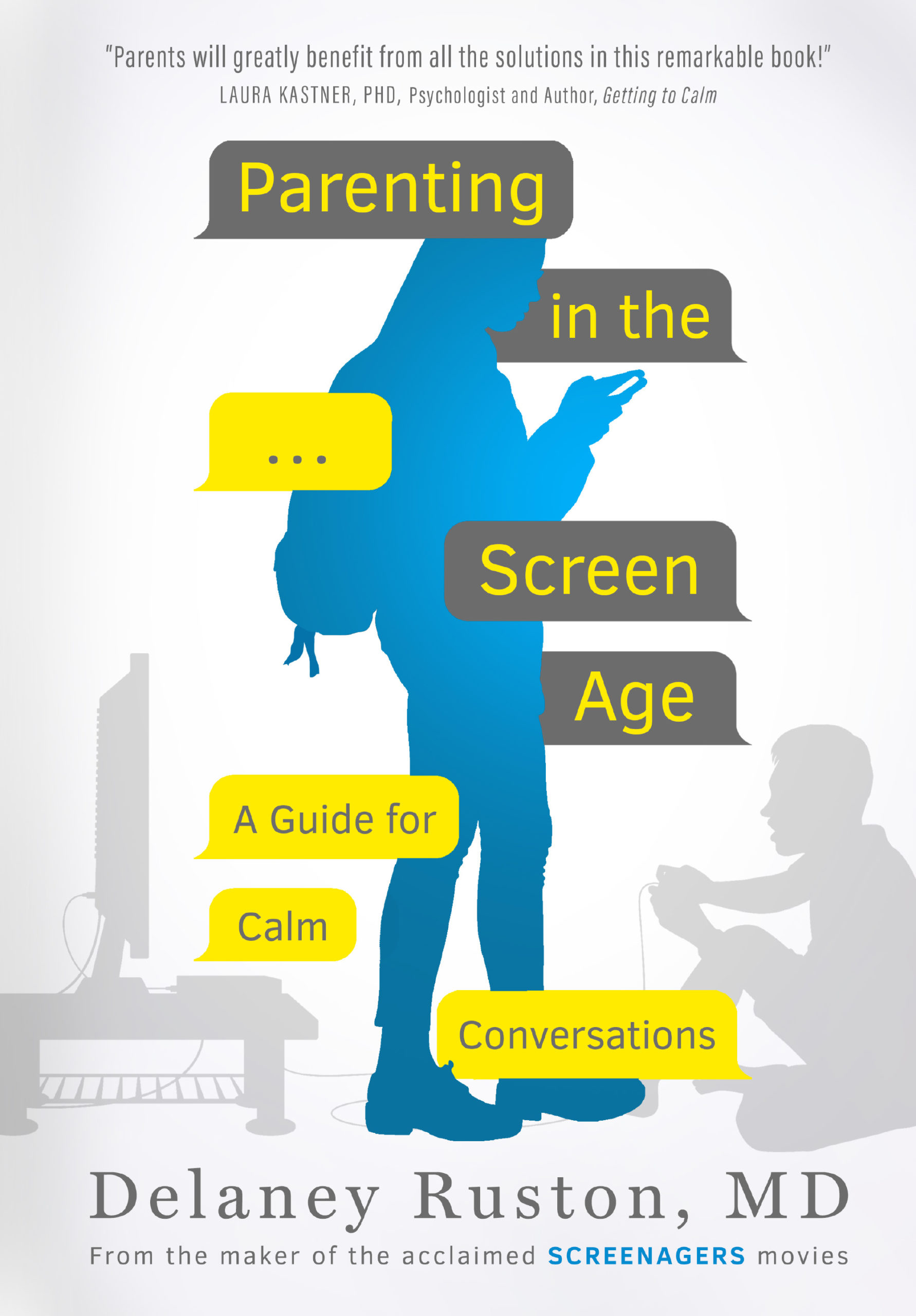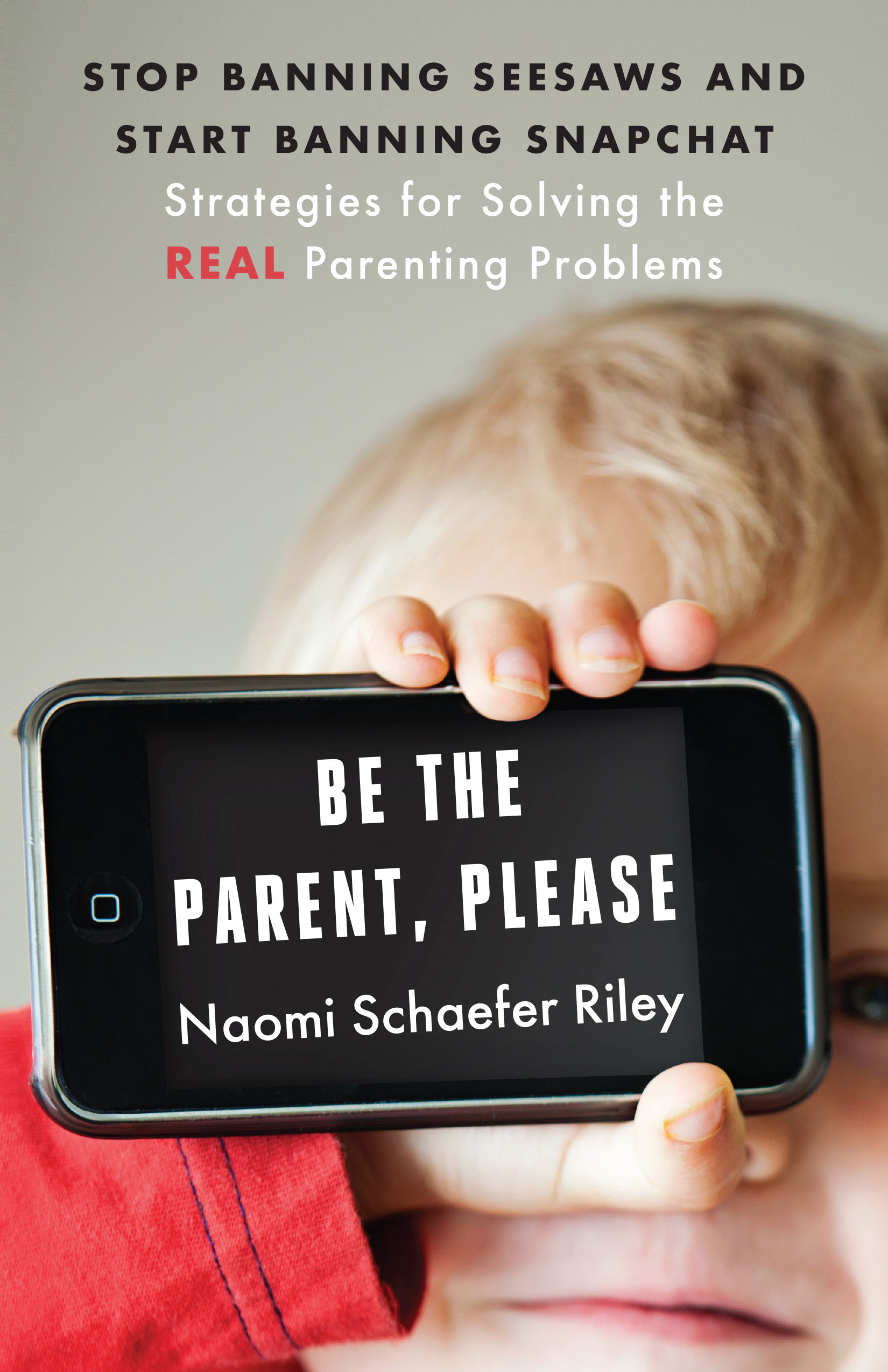As a follow-up to my recent post about the new Screenagers documentary, I asked the film team to share some top tech tips with our readers. These are so spot on, and I hope you find them useful as you navigate online/tech boundaries in your own families.
-
Celebrate tech positives
The reality is, we are attached to our devices for some very good reasons – they are incredibly useful tools in our daily lives. Complaining to our kids about their screen use puts them on the defensive and sets us up to get locked into a parent vs. child power struggle over screen time. Filmmaker Ruston found that when she took a closer look at her daughter’s social media interactions, she found, “there was a lot more positive communication than I had expected.” Recognize and acknowledge the good stuff and you’re more likely to find yourself on the same team with your kids. This sets you up as more friend than foe when you start tackling screen time guidelines together.
Note from Amy: This reminds me of an article from PEP‘s Robbye Fox about embracing technology with your kids.
-
Kids secretly know that limits help
It’s part of the teenager’s job to resist limits, but underneath, they appreciate parents enforcing limits to keep them safe. Limits are tangible evidence that parents still care and stay involved. In the film, California State University professor Larry Rosen explains that young brains “have not fully developed to resist the impulse to self-distract. It’s not their fault.” When Ruston asks a group of teens whether they are glad their parents have rules about screen use at home, several respond, “Yes. You would never stop if you didn’t. Until your phone dies.”
-
Agree on limits together
In Screenagers we see Ruston fumble on limit-setting before succeeding. Along with a new smart phone for her daughter Tessa, she delivers a contract outlining rules around its use. But a group of teens interviewed in the film enlighten us, explaining that rules work a lot better when they are included in the decision-making and understand the reasons behind the rules. As one boy says, “When my parents actually have that deep conversation, it works a lot better.” Eventually Tessa and her parents develop a screen time contract together that is custom-fit to their family and gets buy-in from all.
4. Make homework and bedtime screen-free time zones
When students in Screenagers share their personal screens-off strategies, one includes, “When I study, I turn off the data on my phone, and that way I can’t get text messages.” A Seattle Children’s Hospital pediatrician shares in the film, “When I talk to parents about taking technology out of a room in the evening so their kids can sleep, they’re sometimes surprised that they can even do that. That it’s okay and other parents are doing it.” You can too! Before phones, we woke up to our alarm clocks…
-
Bring back non-screen activities
Sports, creative projects, being outside, music… extracurricular involvements tend to dwindle while screen time takes their place. Return to balance by involving kids in afterschool teams and activities. Screenagers features this observation: kids enrolled in afterschool programs experience increased self-confidence, fewer behavior issues and higher grades. In the film, college student Andrew, a pianist and high-performing student who completes a video game addiction rehab center program after dropping out of college, reflects, “If I had dedicated all my computer time to mastering an instrument or reading or exploring things, I would be way above where I am now.”
-
Should parents follow rules too?
“I think dad really really needs restrictions. He’s just hooked,” says a young girl in the film. Ruston ponders, “Can we really tell our kids, ‘Do as we say and not as we do?’”
-
Keep the conversation alive
Screenagers introduces “Tech Talk Tuesdays” as a way for families to have short, regular conversations about how technology fits into their lives. Weekly conversation starters and discussion questions are featured on the film’s website.
-
Both parents may not see eye to eye
A boy in Screenagers talks about his parents’ differing views on video games for example, noting “Mom is a girl and girls don’t like boy things. My dad is fine with it.” Check in on your own views on various screen time topics and discuss them as a family. Find out where you do agree and accept the differences, or gather more facts. The film’s website offers a lot of resources you can use to inform your choices.
-
Know you are not alone
“This is one of the most difficult parenting issues we’ve ever faced as a society,” acknowledges the co-founder of an internet addiction rehab center featured in the film. “Video game use, internet consumption. All of that is very difficult to parent around.” Virtually any parent you talk to will acknowledge there are struggles. Screenagers’ Facebook page offers a place to share and get new ideas, for example.
-
Enthusiasts are not “addicts”
A recently published Common Sense Media poll reports that one of every two teens feels addicted to their mobile devices. But Ruston draws a clear line around what qualifies as a real addiction, and feels it’s important we don’t overuse the term. “We should be careful to stop using the word ‘addiction’ so kids can have an internal sense of control. They have to know that the device does not control them.”






[…] light of recent posts on managing the digital age, this article caught my eye. The data is alarming about how connected […]